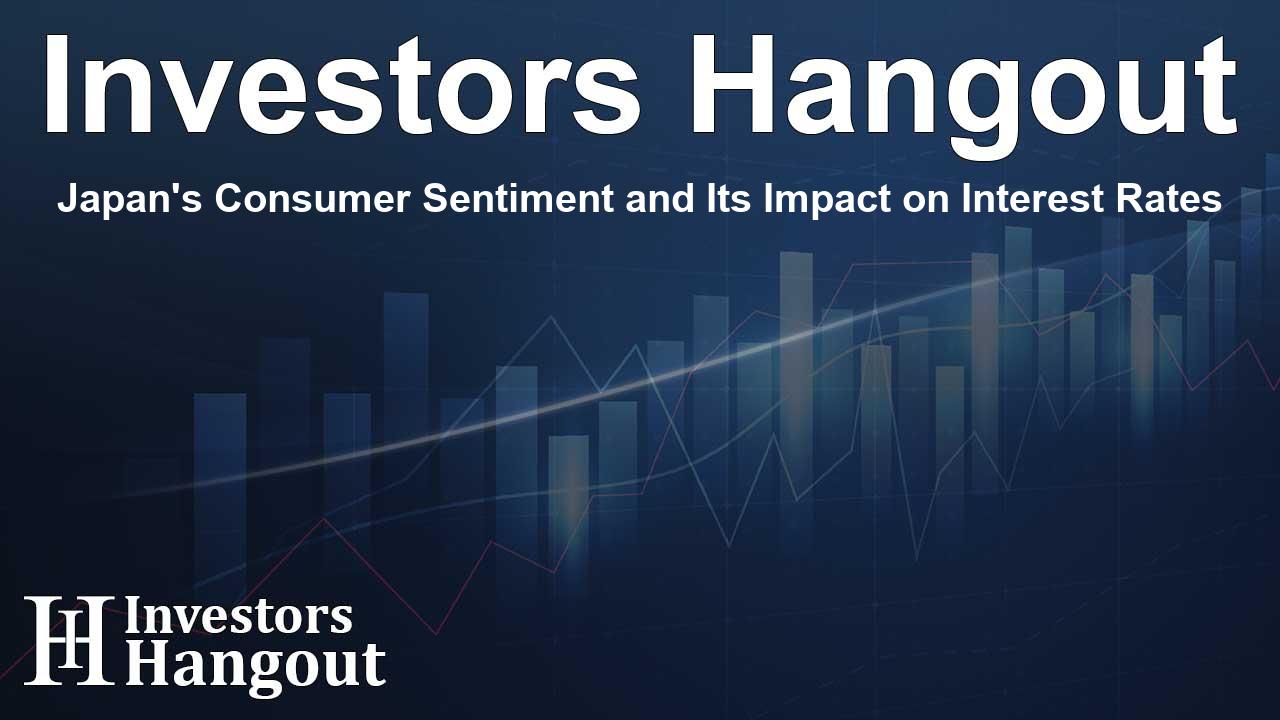Japan's Consumer Sentiment and Its Impact on Interest Rates

Understanding Japan's Consumer Sentiment Shift
Recent signals from Japan indicate a notable decline in consumer sentiment, raising questions about the trajectory of interest rates and the economy at large. As reported, a government survey revealed that the index measuring consumer sentiment fell to 36.2 in December, reflecting a 0.2 point drop from the previous month. This dip could be a crucial indicator for economic planners.
The Implications for Economic Policy
This decline comes just ahead of the Bank of Japan's next policy meeting, scheduled for late January. Analysts anticipate discussions surrounding a possible rise in interest rates from the current 0.25%. However, the deteriorating sentiment may prompt the bank to rethink its recent optimistic outlook.
Consumer Spending and Economic Foundations
The notion that robust household spending can sustain economic growth is being tested as new data emerges. Despite expectations of a growing consumption trend, the survey results suggest that consumers are feeling the pressure from rising living costs, which could hinder spending.
Challenges Faced by Japan's Workforce
In a broader economic context, Japan's output gap has remained negative for over four years, indicating that actual economic output continues to lag behind its potential. This sustained gap suggests a continuing soft demand that may hinder recovery efforts.
Wage Increases and Corporate Responses
On a somewhat positive note, some large companies are making strides toward robust wage increases. Fast Retailing, owner of the popular Uniqlo brand, has announced plans to boost wages for certain employees by as much as 11%. This reflects a broader recognition among some sectors that investing in human capital is critical for long-term stability.
Future Projections and Economic Stability
Prospective growth hinges heavily on consumer sentiment and the potential for wage increases. According to Bank of Japan Governor Kazuo Ueda, the central bank is prepared to adjust rates based on the robustness of wage and consumption trends. If advancements toward achieving the 2% inflation target persist, further rate hikes may be on the table.
Monitoring Economic Indicators
The ongoing analysis of economic indicators will play a vital role in shaping the Bank of Japan's monetary policy. A continued focus on wage momentum and consumer behavior will guide future decisions as the country seeks a sustainable recovery. The sentiment, outputs, and wages will be interlinked in determining how the economic landscape evolves in the coming months.
Conclusion: Navigating Economic Challenges
The recent shifts in consumer sentiment could signify larger trends influencing Japan's economic future. As the Bank of Japan deliberates on rate changes, understanding these consumer behaviors and corporate responses will be essential for policymakers striving for economic growth. The intertwined nature of wages, consumption, and inflation will continue to play a critical role as Japan moves forward.
Frequently Asked Questions
What factors are contributing to Japan's declining consumer sentiment?
Increasing living costs and uncertainties in the global economy are significant contributors to the decline in consumer sentiment.
How might this affect interest rates in Japan?
The decline in consumer sentiment could lead the Bank of Japan to reconsider its plans to raise interest rates amid concerns about economic stability.
What is the output gap, and why is it important?
The output gap measures the difference between an economy's actual output and its potential. A negative output gap signals underutilization of resources, indicating economic challenges.
What are companies like Fast Retailing doing about wages?
Fast Retailing has announced significant wage increases for its staff, reflecting a proactive approach to attract and retain talent amidst fluctuating consumer sentiment.
How is the Bank of Japan planning to respond to these economic indicators?
The Bank of Japan is focused on monitoring wage momentum and consumer trends to inform future monetary policy decisions, including potential rate hikes.
About The Author
Contact Olivia Taylor privately here. Or send an email with ATTN: Olivia Taylor as the subject to contact@investorshangout.com.
About Investors Hangout
Investors Hangout is a leading online stock forum for financial discussion and learning, offering a wide range of free tools and resources. It draws in traders of all levels, who exchange market knowledge, investigate trading tactics, and keep an eye on industry developments in real time. Featuring financial articles, stock message boards, quotes, charts, company profiles, and live news updates. Through cooperative learning and a wealth of informational resources, it helps users from novices creating their first portfolios to experts honing their techniques. Join Investors Hangout today: https://investorshangout.com/
The content of this article is based on factual, publicly available information and does not represent legal, financial, or investment advice. Investors Hangout does not offer financial advice, and the author is not a licensed financial advisor. Consult a qualified advisor before making any financial or investment decisions based on this article. This article should not be considered advice to purchase, sell, or hold any securities or other investments. If any of the material provided here is inaccurate, please contact us for corrections.
